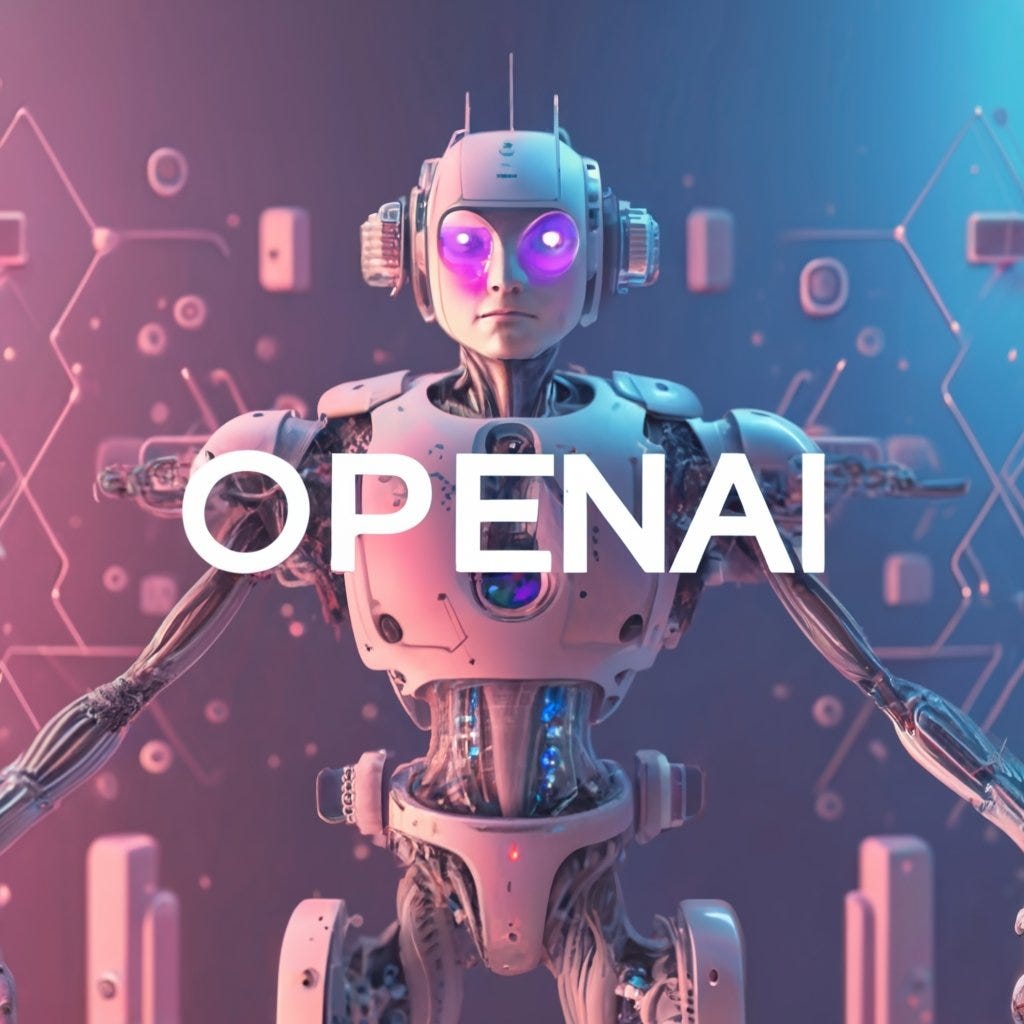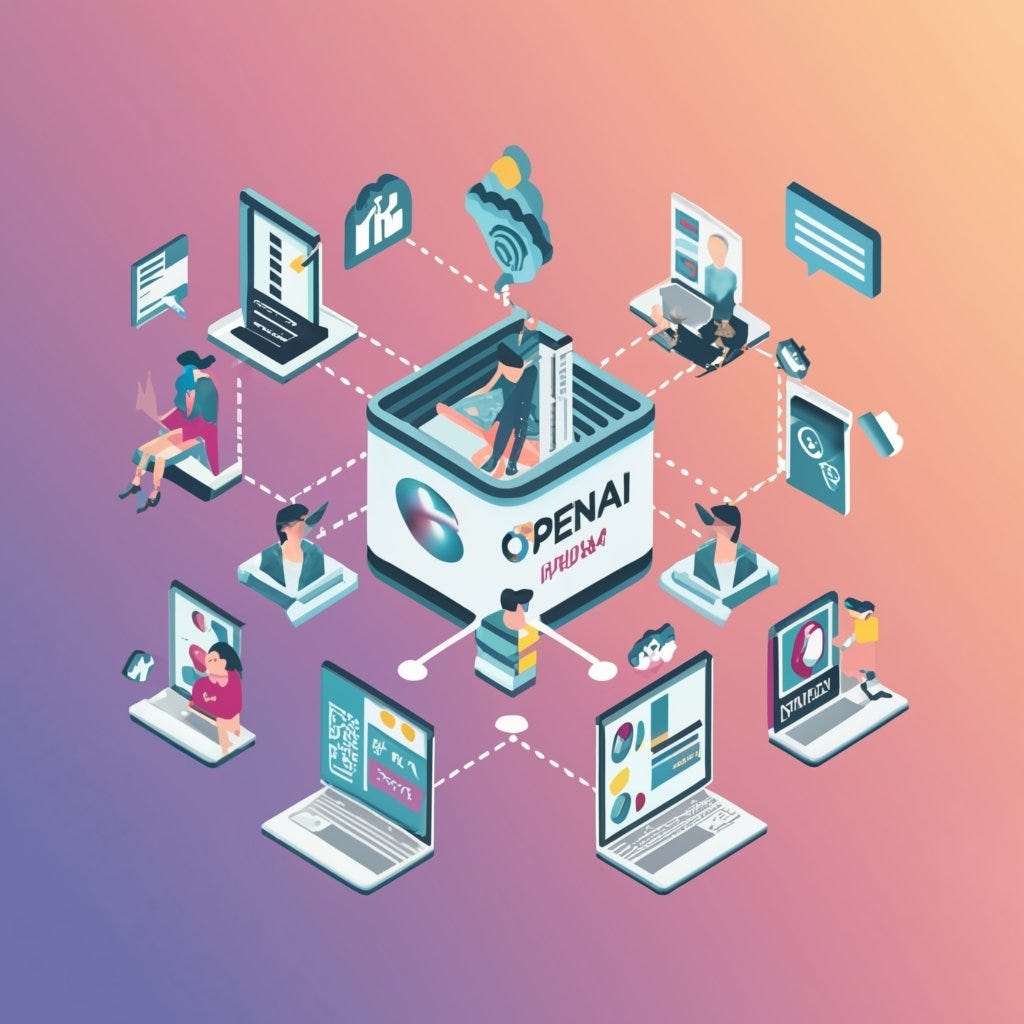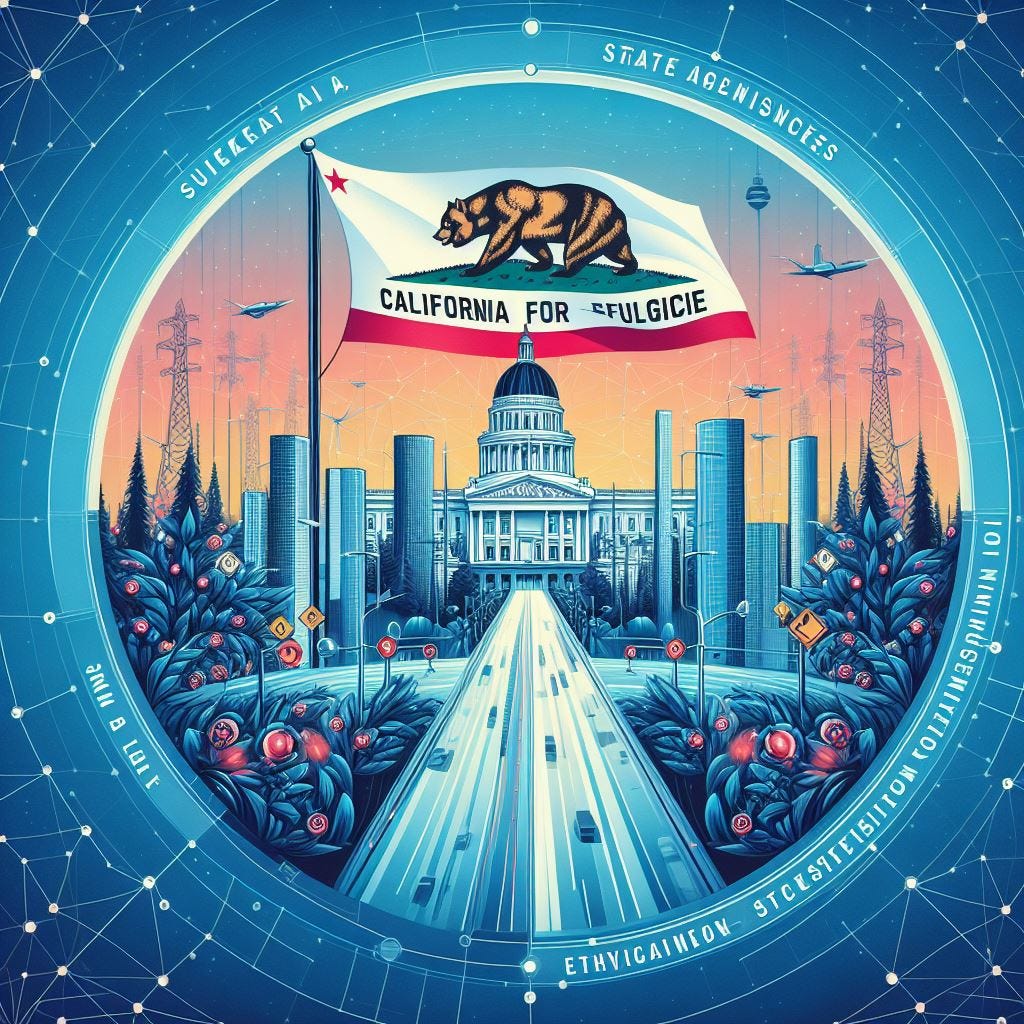The Pursuit and Payoff of AI: Companies and Governments Navigate Risks on Path to Progress
How Leading Tech Firms and States Are Striving for AI Innovation, Ethics and Opportunity Through Emerging Models, Regulations and Content Deals
OpenAI Negotiates Content Deals Amid AI Creators Platform Launch
- OpenAI launching GPT Store next week for users to distribute & profit from personalized chatbots
- Also negotiating compensation deals with news publishers to license content for AI training
- Proposed annual licensing fees reportedly $1M-$5M; seen by some as too little for smaller publishers
- Comes amid NYT lawsuit alleging unauthorized AI training & unfair competition via ChatGPT
- OpenAI expanding partnerships but faces scrutiny around sufficient publisher compensation, legal issues
Baidu Bets on AI to Revive Fortunes After Strategic Missteps
- Baidu staking future on chatbot Ernie as generative AI amid years of failed ventures
- Issues like lack of focus, high turnover, leadership problems hindered past new initiatives
- Return of CEO's wife to prominent role complicated decisions, drove away key talent
- Resources shifted from sidelines like autonomous driving to focus on Ernie as next big bet
- Success could restore status as tech leader; failure leaves Baidu also-ran
HEADLIME IS THE GO-TO GPT-3 TOOL FOR MARKETERS.
WRITESONIC IS ONE OF THE BEST ARTIFICIAL INTELLIGENCE-POWERED COPYWRITING GPT-3 TOOLS.
Fashion Embraces AI Amid Looming Regulation
- Fashion industry eagerly adopting AI for personalization, counterfeit detection
- EU concluding landmark AI Act regulating ethical development & use
- Fashion brands must prepare now for compliance before rules fully take effect
- Steps like governance policies, vendor due diligence key ahead of oversight
- Proactive governance will give ethical AI users competitive advantage
OpenAI Offers Up To $5 Million Annually For Publisher Content
- OpenAI pays $1M-$5M per year to license news content for AI model training
- Falls short of Google's $1B publisher partnership pledge
- Licensing deals key as web scraping faces copyright hurdles
- Apple reportedly offered $50M+ for publisher AI training rights
- As models like GPT-4 grow, data access fights will intensify
California Bill Seeks AI Safeguards for State Agencies
- New California bill aims to regulate government agency use of AI
- Requires accountability measures like public notice of AI interactions
- Seeks to guide responsible state adoption amid advancing capabilities
- Addresses issues like bias, opacity to balance benefits & risks
- Aligns with federal & state efforts on AI governance
OpenAI Negotiates Content Deals Amid AI Creators Platform Launch
As OpenAI prepares to launch its GPT Store platform next week, enabling AI creators to distribute and profit from their personalized chatbots, the company is also negotiating content licensing agreements with news publishers. Seeking to compensate media companies for using their content to train OpenAI's generative models, the deals propose annual payments from $1-5 million. While signaling OpenAI's openness to collaborate, the proposed figures have drawn critique as insufficient even for smaller publishers.
The licensing talks come amid OpenAI and Microsoft facing a lawsuit from The New York Times alleging unauthorized training of AI using NYT content, and unfair competition through providing subscribers-only access via ChatGPT. Though OpenAI contests the claims under fair use, its reconsideration of legal strategy is possible given recent developments. As OpenAI fosters publisher partnerships, touting GPT-4’s creator economy potential, its ability to sufficiently compensate news media while navigating legal hurdles around content usage will shape relations.
Baidu Bets on AI to Revive Fortunes After Strategic Missteps
Baidu is staking its future on generative AI through its chatbot Ernie, as the company seeks to regain momentum after a decade of strategic misfires across initiatives from ecommerce to autonomous driving.
Once the 'B' in China's tech trinity BAT, Baidu has struggled to incubate successful new businesses under founder Robin Li's leadership. Former employees cite Li's obsession with technology over profits, lack of product focus, and high turnover of top talent as issues. The return of Li's wife Melissa Ma to an influential role at Baidu five years ago also caused complications in decision-making and drove away a key hire.
With resources now heavily directed towards Ernie as Baidu's next big bet, side projects like its electric vehicle plans face cuts. But Ernie must contend with a crowded field of homegrown rivals utilizing Chinese language models. Despite upgrades, benchmark tests show little clear advantage over competitors.
Li is urging China's AI community to build apps atop Baidu's foundations rather than compete directly. With Beijing tightening content rules around AI, Baidu risks violations from Ernie's English-language training. While Li sees consolidation ahead, the field is expanding rapidly.
Baidu has rebranded before, but generative AI presents a pivotal moment. Success could revive the company as a leader in emerging tech. Failure may leave Baidu permanently relegated as a secondary force.
Fashion Embraces AI Amid Looming Regulation
The fashion industry has eagerly adopted AI, deploying it for personalized recommendations and to combat the $1.9 trillion counterfeit market. Image recognition AI from brands like Jimmy Choo spots inconsistencies in fakes. But with the EU concluding negotiations on the landmark AI Act in December 2022, establishing rules for ethical AI development and use, the industry must get ready for impending oversight.
Fashion companies should take a principled approach to AI now, before regulations fully take effect. Steps like coherent internal policies and training on employee AI use, due diligence on vendors, and documented assessments are key. Just as GDPR caught business flat-footed in 2018, fashion can avoid similar confusion by using the 18 months before the AI Act takes effect to integrate strong AI governance. Though complex, sound governance will give ethical AI users a competitive edge. By taking action early, fashion can stay at the vanguard of AI’s benefits while meeting society’s growing expectations around its responsible use.
OpenAI Offers Up To $5 Million Annually For Publisher Content
As OpenAI negotiates deals to license news content for training its AI models, figures indicate the company pays publishers between $1-5 million per year for copyrighted articles. This pricing aligns with some past non-AI licensing agreements, like Meta's former $3 million deals for Facebook News. But it falls short of the $1 billion Google pledged for publisher partnerships.
With web scraping facing hurdles, obtaining licensed data is key for AI firms. OpenAI and others risk copyright lawsuits and blocked access if they don't strike agreements. Though details are sparse, Apple reportedly offered over $50 million to media firms for multi-year AI training rights.
For publishers weighing content deals, OpenAI's reported $5 million ceiling may prove insufficient. Compensation expectations likely hinge on both the value of exclusive content and the revenue AI platforms gain from models trained on licensed data. As models like GPT-4 grow more central to tech firm offerings, the data access fight will intensify. With figures now public, negotiations will center on fair payment for AI's foundational ingredient - quality information.
California Bill Seeks AI Safeguards for State Agencies
A new bill introduced in the California Senate aims to regulate state agencies' use of artificial intelligence through accountability measures and public transparency. The proposed California AI Accountability Act comes as governments at both federal and state levels grapple with guiding the responsible adoption of rapidly advancing AI capabilities.
The bill spearheaded by Sen. Bill Dodd would require state entities to review and establish guidelines when deploying AI systems, particularly "high-risk" ones automating decisions. It mandates giving public notice about government AI interactions. The legislation also calls for assessing benefits and risks, while pushing algorithmic discrimination protections, data privacy safeguards, and human oversight provisions.
By tackling issues like bias and opacity, the bill seeks to harness AI's positives while confronting its potential to infringe on rights and opportunities. The move aligns with President Biden's AI Bill of Rights and Governor Newsom's executive order supporting the technology's growth in California but addressing its societal impacts. With bipartisan urgency around AI governance mounting, the state's proposal could shape wider efforts to balance innovation and accountability.











